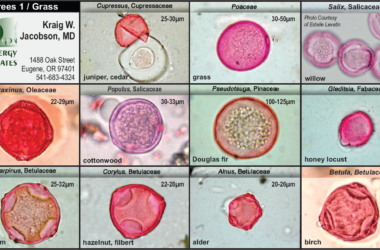
While every month should be Heart Health Month, we at least focus on supporting our cardiovascular super pump one month each year in February. There’s no better way to get ready to celebrate this time of year than to share with those we love tips for supporting cardiovascular health. Fortunately, in the nutrition field, we have many guides available that review the studies, go deeper and share helpful tips we can all implement to achieve our goals of optimal health – as well as avoid the prescription medications and all of their side effects.
As I wrote last week, one of my favorite guides is board certified cardiologist, Jack Wolfson, DO, FACC, who’s book, ”The Paleo Cardiologist” was published a couple of years ago. In his book, he describes his path from a having a typical drug and surgery based cardiology practice as part of a prestigious group of doctors, to studying the benefits of nutrition and herbal medicine as an adjunct and alternative path of healing for his patients.
In his book, he covers diet and lifestyle tips for cardiovascular health, (and general health) includes his ”Top Twenty Supplements.” I shared the benefits of multivitamins, greens powders, chlorella, spirulina, omega-3 fatty acids, CoQ10, and vitamin K last week, and will share the rest of Dr. Wolfson’s Top 20 options with you in today’s and next weeks’ columns:
7. Vitamin E: This vitamin is a key nutrient to maintain our skeletal, cardiac and smooth muscles. Keep in mind that as you are reading this, your heart muscle is working; pumping blood with its nutrients and other important molecules such as oxygen to all of your bodies regions.
Vitamin E is a powerful antioxidant, protecting the cells in your body from free radical damage. Protecting your cell membranes is key to health because through these barriers our cells receive nutrients and remove waste, and communicate with the rest of the cell ”teammates.”
Vitamin E is made up of four different tocopherols, and four different tocotrienols and it is suggested to supplement with a complex of these nutrients which will also support normal blood clotting, and an improved vascular endothelial function, leading to smoother blood vessel lining and better blood flow.
8. Vitamin C: Aargh! Why do pirates not bathe before going on a sailing trip? Because they will wash ashore later on! Before we discovered the connection between vitamin C and scurvy sailors – including pirates – did not stay out to sea for long periods of time. They would complain of loose teeth, bleeding gums and would be described as having low energy or lassitude. They often ”walked the plank” since they were not earning their keep.
Vitamin C is an integral role on collagen production; ”colla” is the greek word for glue, and it’s the glue that holds our body together: gums, skin, bones, joint tissue and, of course, components of our cardiovascular system. Our blood vessels are made of collagen and with vitamin C we can keep this collagen healthy, and as a result have better blood pressure levels.
9. Vitamin D: Low levels of this important vitamin is associated with just about every disease we suffer from as a society. The list is long and includes, coronary, stroke, hypertension, Alzheimers, osteoporosis, and cancer. One study found that supplementing with vitamin D and calcium dropped systolic blood pressure by 10 percent.
It’s always best to take your vitamin D along with your multivitamin and, of course, always with vitamin K2. We produce vitamin D in our inner skin layers when we are exposed to sunshine, which is not very abundant for much of our Northwest region. Get your vitamin D levels checked the next time your doctor orders blood work.
10. Digestive Enzymes: We can be making the best food choices: eating organic with plenty of veggies, but if we can not absorb the nutrients in our food, we can still be considered ”malnourished,” resulting in lack of energy (uh oh, don’t forget the plank!), and disease. As we get older, we produce less stomach acid and the other enzymes that we need to break down our food; all of those macro and micro nutrients we need.
If our food is not digested properly, large particles can irritate our digestive system lining resulting in leaky gut, and the potential for autoimmune diseases. Low stomach acid can lead to ”heartburn,” and often being diagnosed with GERD. Dr. Wolfson notes that he does not prescribe ”dangerous pharmaceuticals that inhibit acid production, and started my patients on natural therapies” instead.
11. Berberine: This botanical extract found in many plants including Oregon grape and barberry (roots) is one of the paleo cardiologist’s favorite nutrients to support cardiovascular health. He sites many studies that support adding this nutrient for improved lipid control, diabetes prevention, weight loss, and memory retention. A study published in the American Journal of Cardiology found improvements in ejection fraction, exercise capacity in berberine treated patients with congestive heart failure.
12. Hawthorne: His next suggested nutrient is from this thorny tree with nutrients in the leaves, flowers and berries that are a tonic for our heart, and supports improved LDL numbers, lower triglycerides, better bile flow, improved edema, ejection fraction and exercise performance.
These are just a few of Dr. Wolfson’s ”Top Twenty Supplements.” Stay tuned for next week, we’ll wrap up this series with L-arginine, L-citruline, magnesium, probiotics, taurine, garlic, beetroot powder, nattokinase, red-yeast rice and celebrate February’s Heart Health Month. For more information about this subject stop in and see me, and pick up a copy of Dr. Wolfson’s book, also hopefully available at your favorite book store and library. Salud!







